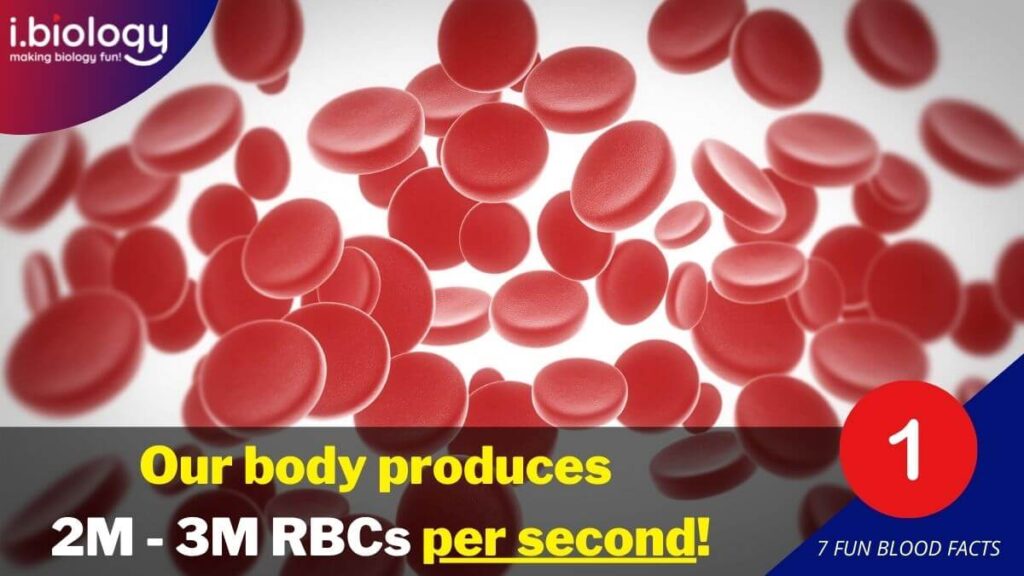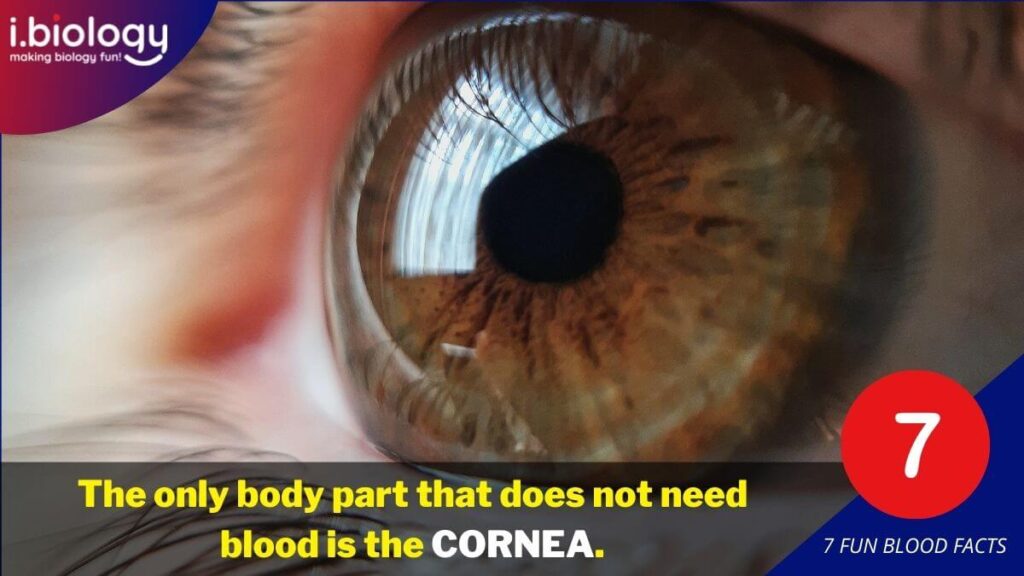Click here to comment on YouTube
What do you know about blood? I’ll share with you 7 fun (and very interesting) facts that you probably didn’t know. Let’s start!
Fact #1: The body produces 2M-3M RBCs per second
Did you know that every second, the body makes somewhere between 2 and 3 million red blood cells? That’s a whole lot of cells.
But the reality is, the demand for oxygen throughout the body is so high that these cells are needed in very high numbers. There are around 5 million red blood cells in a microliter of blood, so our bone marrow has a huge job to do.
Fact #2: An adult body’s total blood vessel length is around 2x the circumference of the earth at its equator!
An adult body has 60,000 miles of blood vessels running throughout the body. Or depending on where you are in the world, that would be 100,000 kilometers.
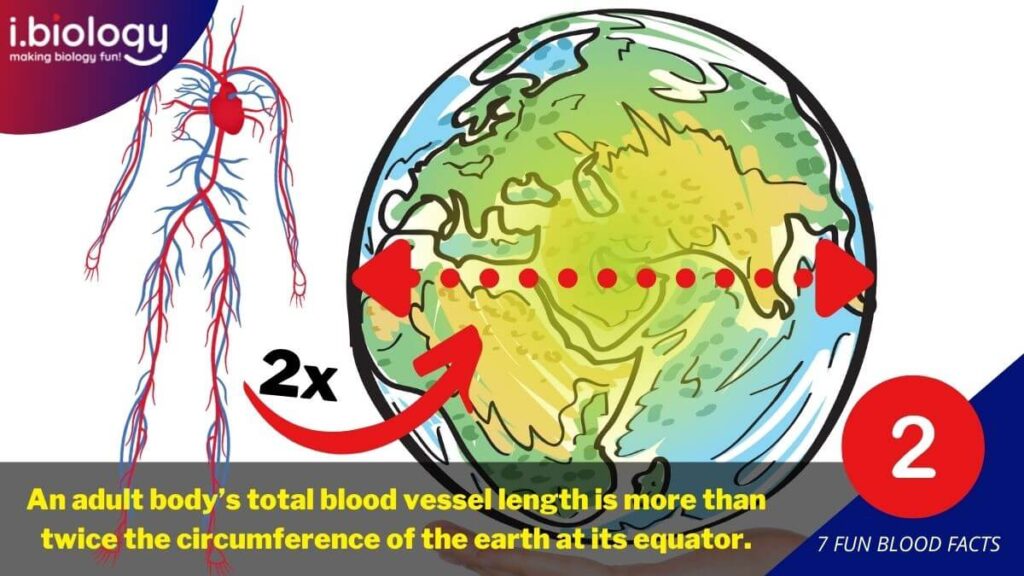
Now, just to give that a little bit of context, the circumference of the earth at the equator is a little less than 25,000 miles. So if you were to line all of your blood vessels up, it would wrap around the earth almost 2.5 times. That’s mind-blowing.
Fact #3: It takes only 60 seconds or less for pumped blood to travel to and from the heart!
Ok, let’s go with fact number 3. When blood leaves your heart, it goes on a journey through your body. Well, it takes about a minute, 60 seconds, for blood that leaves your heart to go through the body and get back to the heart.
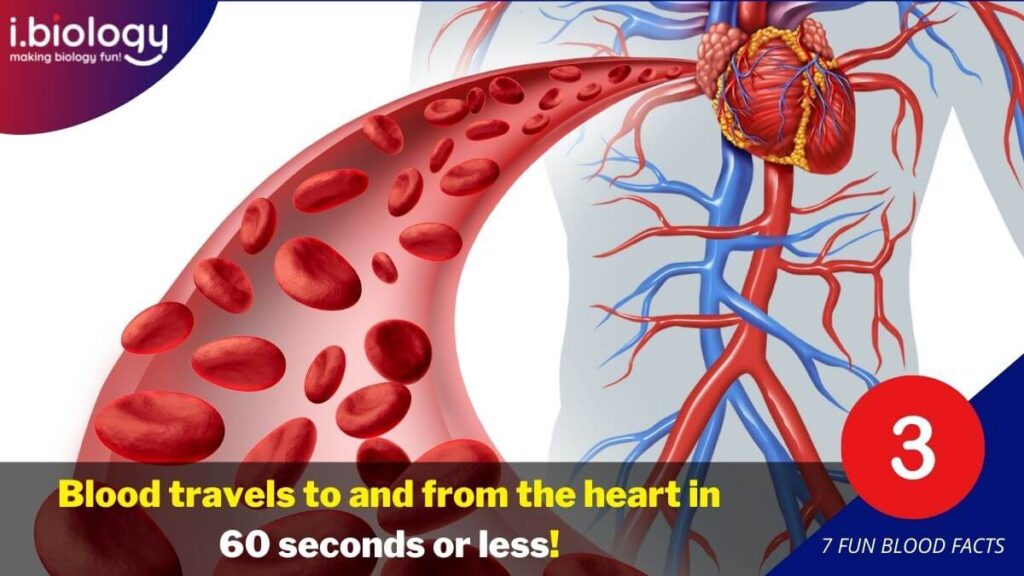
Now obviously, this is an average, but it can actually go much faster. Think about it, when you’re exercising, your heart rate increases significantly, so that 60 seconds can be knocked down pretty quick. But it’s a pretty accurate average.
Fact #4: Most common blood type in the US is O+. Guess what is the rarest?
You know about the ABO blood grouping system. Well, the most common blood type in the United States is O Positive coming in at around 39% of the population. And the least common blood type is AB negative with only 0.5% of the population.
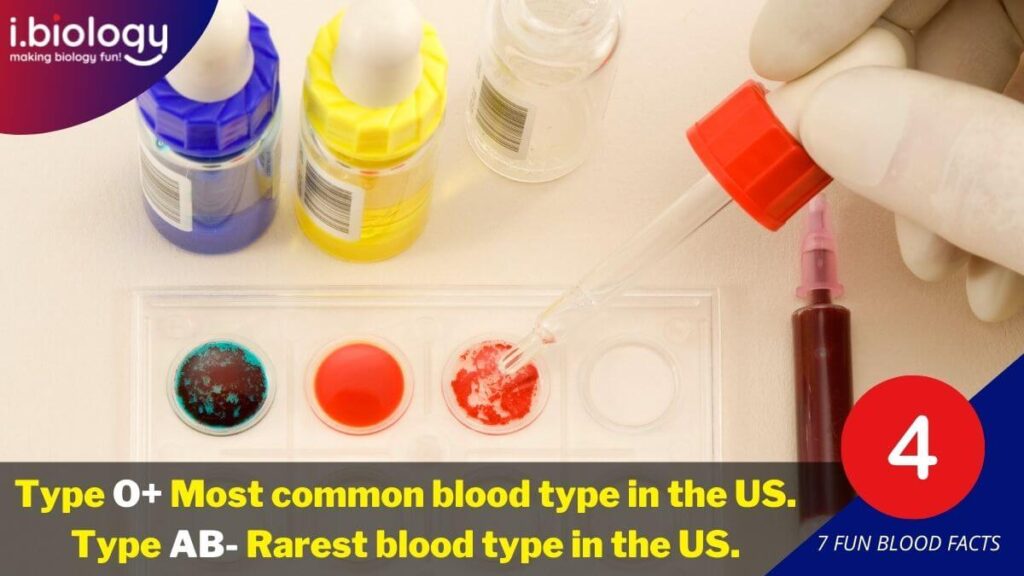
If you want to learn more about blood types and how that all works, check out our previous topic here.
And on the topic of blood types, let’s go right to fact number 5.
Fact #5: There are more than 30 blood groups that make up the different blood types!
As I mentioned, we have the ABO grouping system. Well, that’s actually very simplified based on the most common blood types, which would be types A, B, AB, and O. But did you know that there are actually around 30 different recognized blood types?
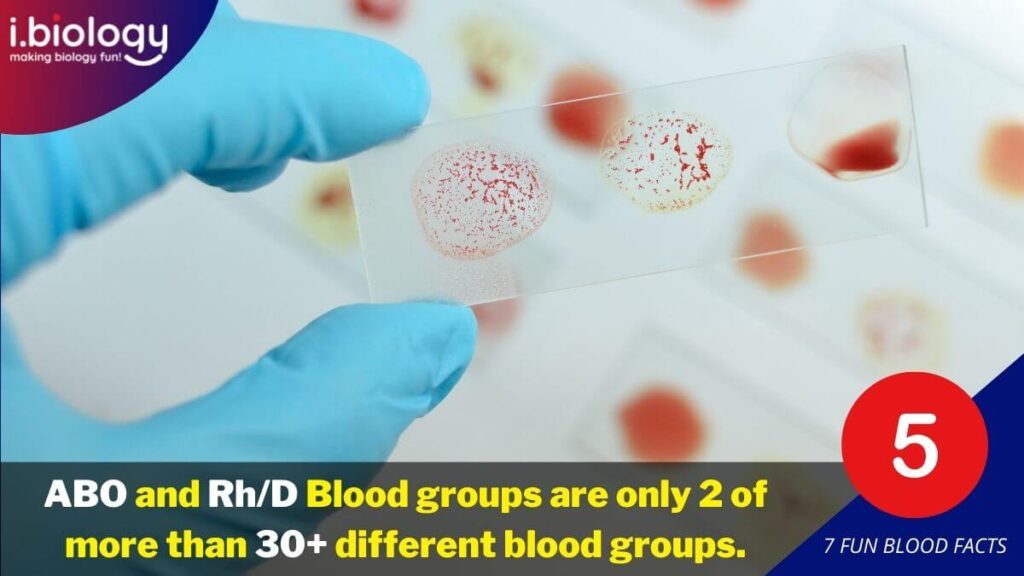
Though we are familiar with common blood types A, B, AB and O, which is a part of the simplified ABO system, there are actually over 30 different recognized blood groups or blood types. We have the MNS system, Lutheran, Kelly, Kidd and other grouping systems.
But while there are all of these different blood types, the well-established ABO grouping system is the main one used and has a lot of significance especially when it comes to blood transfusions.
And while we’re talking about blood transfusions, let’s chat a bit about fact number 6, which is related to blood donation.
Fact #6: Donated blood components have different shelf life.
Did you know that when you donate blood, the red blood cells can be stored for up to 42 days, while your platelets can only be stored for 5 days.
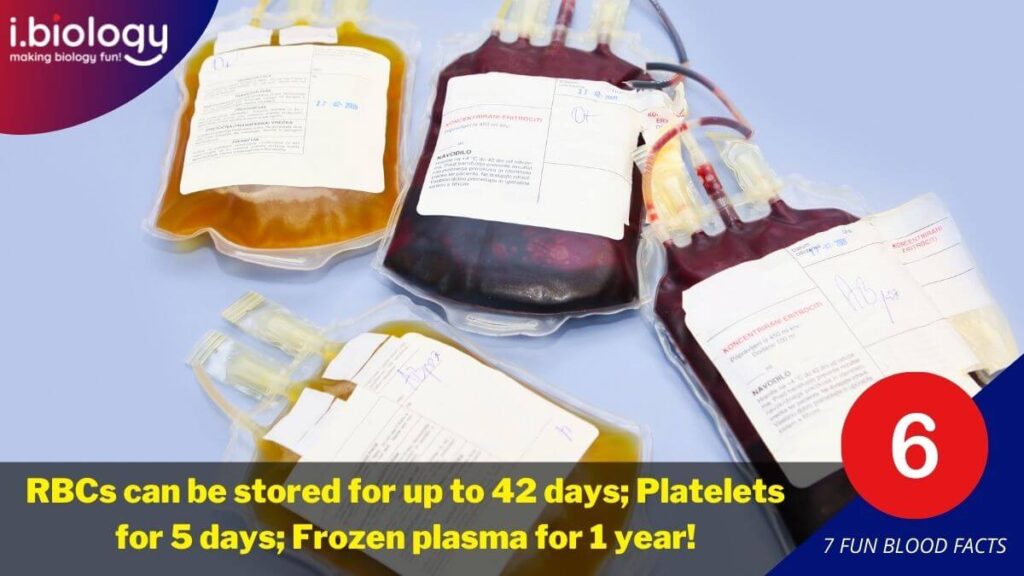
On the other end, donated blood plasma can be stored for up to a year, but it has to be frozen to last that long.
Fact #7: The cornea is the only body part that does not need blood at all.
And for our last fun fact about blood, did you know that there’s one body part that doesn’t use blood at all? Yes. That part is the cornea in your eye.
That’s because it doesn’t need blood. It can actually get oxygen directly from the air. No blood needed. As for everywhere else, well – you’re gonna need some blood.
So there we have it – 7 fun facts about the blood.
But I’m curious, did you know any of these facts before? If so, drop a comment and let me know which ones you knew. And this video is a different format. What did you think? Do you want more of these fun fact videos? I’d love to hear from you.
Shout out to our Patrons!
Lastly, I want to give a shout-out to our patrons who are supporting what we do here at Interactive Biology. Thank you Shanon Sloves, Fatty McGee, Mark Mason, and Yuri Herter for your support of Interactive Biology.
If you’d like to support us and get some really cool benefits like downloadable versions of our videos, audio versions that you can listen to on the go, slides, handouts, study guides, and more, check us out on Patreon.

